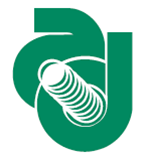Speaker
Description
The Schwarzschild-Couder Telescope (SCT) is a Medium-Sized Telescope proposed for the Cherenkov Telescope Array (CTA). The current prototype is installed at the Fred Lawrence Whipple Observatory (FLWO) in Arizona , USA. The camera is only partially equipped and is being upgraded with improved SiPM sensors and a new Front End Electronics Module (FEEM) for the full focal plane. The new FEEMs aim to read-out and digitize the SiPM pre-amplified signals down to the single photoelectron (phe). This phe signal is assumed equivalent to a signal with 2 mV peak amplitude and 500 MHz maximum bandwidth. The FEEM should have a linear response up to 2 V for a required dynamic range of about 1000 phe. A noise equivalent of 0.5 phe is an acceptable value. Due to the severe mechanical constraints to have compact electronics and low noise performances, the FEEM consists of two stacked-up submodules, one dedicated to the power supplies and the other to house the FPGA which reads-out and sends digitized data to the main backplane. The new FEEM is capable of digitizing 64 analog channels with a sampling frequency of 1 GSamples/s.
A first prototype of the FEEM has been produced. In this contribution we will present the performance of these FEEM prototypes.
| Collaboration | SCT collaboration |
|---|

